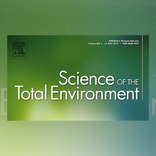Abstract:
Delivering water and sanitation services are challenging in data poor rural settings in developing countries. In this paper we develop a Bayesian Belief Network model that supports decision making to increase the availability of safe drinking water in five flood-prone rural communities in the Solomon Islands. We collected quantitative household survey data and qualitative cultural and environmental knowledge through community focus group discussions. We combined these data to develop our model, which simulates the state of eight water sources and ten sanitation types and how they are affected by season and extreme events. We identify how climate and current practices can threaten the availability of drinking water for remote communities. Modelling of climate and intervention scenarios indicate that water security could be best enhanced through increased rainwater harvesting (assuming proper installation and maintenance). These findings highlight how a systems model can identify links between and improve understanding of water and sanitation, community behaviour, and the impacts of extreme events. The resultant BBN provides a tool for decision support to enhance opportunities for climate resilient water and sanitation service provision.
Delivering water and sanitation services are challenging in data poor rural settings in developing countries. In this paper we develop a Bayesian Belief Network model that supports decision making to increase the availability of safe drinking water in five flood-prone rural communities in the Solomon Islands. We collected quantitative household survey data and qualitative cultural and environmental knowledge through community focus group discussions. We combined these data to develop our model, which simulates the state of eight water sources and ten sanitation types and how they are affected by season and extreme events. We identify how climate and current practices can threaten the availability of drinking water for remote communities. Modelling of climate and intervention scenarios indicate that water security could be best enhanced through increased rainwater harvesting (assuming proper installation and maintenance). These findings highlight how a systems model can identify links between and improve understanding of water and sanitation, community behaviour, and the impacts of extreme events. The resultant BBN provides a tool for decision support to enhance opportunities for climate resilient water and sanitation service provision.
In this work:
tags: |
bibtex: |
|
water, drought, water_treatment, groundwater, chemical, jamie_bartram, water, mark_elliott, environmental treatment, wade_Hadwen, islands
|
@article{chan2020climate,
title={Climate adaptation for rural water and sanitation systems in the Solomon Islands: A community scale systems model for decision support}, author={Chan, T and MacDonald, MC and Kearton, A and Elliott, M and Shields, KF and Powell, B and Bartram, JK and Hadwen, WL}, journal={Science of The Total Environment}, volume={714}, pages={136681}, year={2020}, publisher={Elsevier} } |







